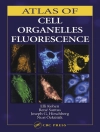Integrative medicine strives to incorporate the best of complementary and conventional modalities. By examining five prestigious comprehensive cancer centers, the authors focus on the innovative ways in which integrative oncology is being incorporated into conventional cancer care in the United States. The authors discuss the field of integrative oncology, the potential harm and legal issues, and how to communicate concepts and treatment with patients. Integrative Oncology: Incorporating Complementary Medicine into Conventional Cancer Care is a platform from which accomplished professionals describe the various aspects of their programs and present their insights to those seeking to start or improve an integrative oncology program. Integrative oncology is a nascent field, and efforts today are building a rigorous evidenced-based clinical medicine, research, and educational foundation for the future.
Jadual kandungan
Integrative Oncology Overview.- A Word of Caution.- Using Legal and Ethical Principles to Guide Clinical Decision Making in Complementary/Integrative Cancer Medicine.- Communicating with Patients about the Use of Complementary and Integrative Medicine in Cancer Care.- Integrative Oncology Programs at National Cancer Institute Comprehensive Cancer Centers.- The Integrative Medicine Program at The University of Texas M. D. Anderson Cancer Center.- The Integrative Medicine Service at Memorial Sloan-Kettering Cancer Center.- Integrative Oncology—Leonard P. Zakim Center.- The Johns Hopkins Complementary and Integrative Medicine Service.- Integrative Oncology at Mayo Clinic.- The Research.- Mind–Body Research in Cancer.- Herbs and Other Botanicals: Interactions with Pharmaceuticals.- Acupuncture in Cancer Care at Dana-Farber Cancer Institute.- Acupuncture for the Side Effects of Cancer Treatments.












